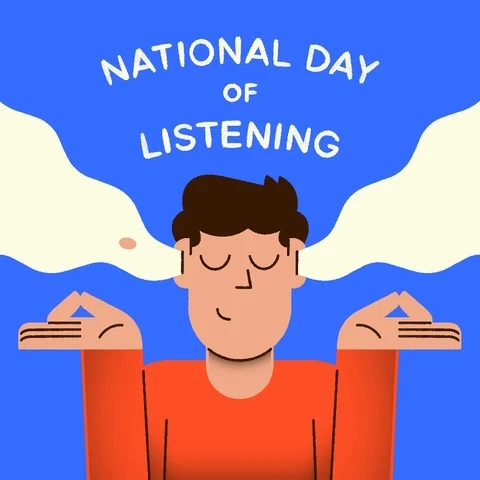Have you ever encountered an angry customer and don't know how to respond? Or how to address an impulse shopper returning an item she just bought a minute ago?

Sounds familiar?

Different customers have different concerns that require customized solutions. For example, one solution for an angry customer may not work with a discount or impulse shopper.

It is important to listen activelyto customers to better understand their concerns.
What Are Active Listening Skills?
Don't think or judge, just listen.
— Sarah Dessen, American author

Active listening is a soft skill that focuses on what people say. American psychologist Carl Rogers started active listening as an effective tool to help people with their personal problems.

Active Listening
Focus on the conversation
Provide feedback
Rephrase/Reiterate statements
Hold back judgment
Ask open-ended questions
Observe non-verbal cues

Not Active Listening
Being distracted
Interrupting the speaker
Pretending to listen
Suggesting solutions without full understanding
Providing unsolicited advice
Why Are Active Listening Skills Important?
Most of the successful people I've known are the ones who do more listening than talking.
— Bernard Baruch, American business mogul and political advisor

Active listening skills in customer service help you:
receive and act on customer feedback
promote healthy customer relationships
reduce conflicts and address concerns
deliver an exceptional customer experience
Active Listening Skills in Customer Service

Here's how it looks when you use active listening skills in customer service scenarios...

Customer: I want to cancel my dental insurance. I recently lost my job and can't afford to pay it.
Customer Representative:I'm sorry you lost your job [provide feedback — empathy]. I heard that you couldn't pay for your current coverage. Am I correct [rephrase/reiterate statement]?

Customer: Your internet service is bad. I'm switching to another provider!
Customer Representative: I understand [hold back judgment].Are there specific issues you want us to address [ask open-ended questions]?
Knowledge Check ✅

Apply active listening skills to the scenario below:
An angry and frustrated customer is returning a defective item to your store and demanding a full refund. How would you address his concern?

Let him vent out and apologize when necessary.

Ask the customer how he handled the product.

Reject his demand for a refund and explain the return policy.

Escalate the issue to your supervisor immediately.
Quiz
Which is the best answer for the above scenario?
Take Action

Now that you've learned how active listening addresses customer concerns, try these activities to hone your new active listening skills.
Your feedback matters to us.
This Byte helped me better understand the topic.
